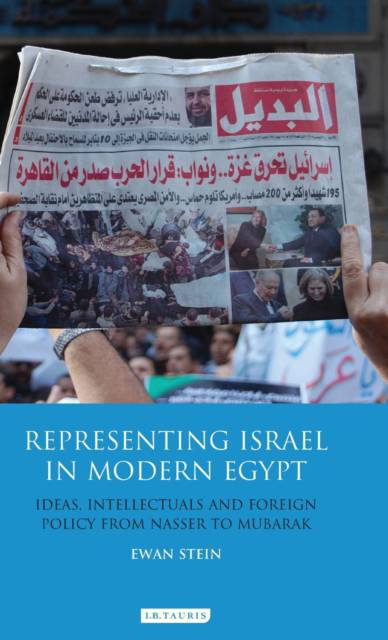
- Retrait gratuit dans votre magasin Club
- 7.000.000 titres dans notre catalogue
- Payer en toute sécurité
- Toujours un magasin près de chez vous
- Retrait gratuit dans votre magasin Club
- 7.000.0000 titres dans notre catalogue
- Payer en toute sécurité
- Toujours un magasin près de chez vous
Representing Israel in Modern Egypt
Ideas, Intellectuals and Foreign Policy from Nasser to Mubarak
Ewan Stein
271,45 €
+ 542 points
Description
From the heady days of Nasser's Arab nationalism to the cold peace of the Mubarak era, the idea and reality of Israel has occupied a central position in Egyptian politics, both domestic and foreign. Ewan Stein seeks to explain and historicise the fragile state of 'no war, no peace' that followed the 1979 Camp David Accords, examining the way in which domestic factors interact with global and regional shifts to shape attitudes to Israel in the Arab world's most populous country. Incorporating the writings of influential thinkers, from Sati' al-Husri to Sayyid Qutb to Mohamed Hassanein Heikal, this book explores the way in which approaches to Israel have been elaborated through broader ideologies and movements, in particular liberal nationalism, Marxism and Islamism. Tracing Egypt's ideological development back to the 1930s, when social movements such as the Muslim Brotherhood took root, Stein argues that Palestine and the Zionist threat came to be linked to Egypt's national and revolutionary struggle - Israel was collapsed into an extension of imperial power, especially after the 1956 Suez crisis.
Nasser's defiant banner of Pan-Arabism soared against Zionism until the ferocious defeat of 1967 unleashed a wave of internal criticism and unrest to usher in a new era of 'peace' and realignment with the West. At the heart of this book is the way in which these tremendous foreign policy shifts have been played out on the Egyptian stage as Israel has been 'instrumenatalised' by regimes and social movements. Egypt's conceptions of self have been neither consistent nor unified, and this is mirrored in shifting approaches to Israel and points to an inherent tension in the dynamics of state-societal relations. This book provides nuanced and original insights into the relationships between state, society and foreign policy within the context of Egyptian nationalism and broader Middle Eastern politics.
Nasser's defiant banner of Pan-Arabism soared against Zionism until the ferocious defeat of 1967 unleashed a wave of internal criticism and unrest to usher in a new era of 'peace' and realignment with the West. At the heart of this book is the way in which these tremendous foreign policy shifts have been played out on the Egyptian stage as Israel has been 'instrumenatalised' by regimes and social movements. Egypt's conceptions of self have been neither consistent nor unified, and this is mirrored in shifting approaches to Israel and points to an inherent tension in the dynamics of state-societal relations. This book provides nuanced and original insights into the relationships between state, society and foreign policy within the context of Egyptian nationalism and broader Middle Eastern politics.
Spécifications
Parties prenantes
- Auteur(s) :
- Editeur:
Contenu
- Nombre de pages :
- 256
- Langue:
- Anglais
- Collection :
Caractéristiques
- EAN:
- 9781848854604
- Date de parution :
- 04-09-12
- Format:
- Livre relié
- Format numérique:
- Genaaid
- Dimensions :
- 140 mm x 218 mm
- Poids :
- 453 g

Les avis
Nous publions uniquement les avis qui respectent les conditions requises. Consultez nos conditions pour les avis.






